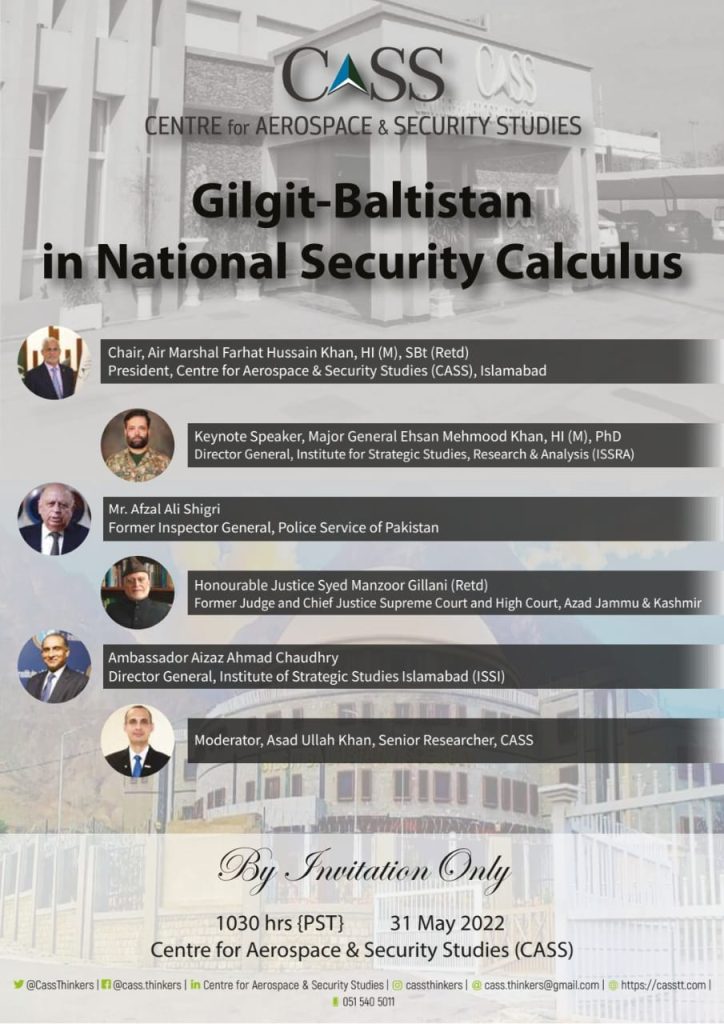Concept Note
The Gilgit-Baltistan (GB) region is neither a province of Pakistan nor a formal part of the federation. Its status has remained in limbo since 1947. This has led to political discontent amongst the people of GB who have been clamoring to be given rights as are available to other provinces. The sense of deprivation is being exploited by India through various international NGOs and the GB diaspora settled in Europe and the United States.
While the colonial era administrative structure, constitutional ambiguity and socioeconomic factors contributed to discontent amongst the residents of GB, the situation was further aggravated due to the developments in the region including Indian hegemonic ambitions and its propaganda, chaos in Afghanistan, Indo-China tension and our own acts of omission and commission.
GB’s political status has evolved over the years. The Northern Areas Council established in 1975 was renamed as Northern Areas Legislative Council in 1999. Subsequently, GB became an ad hoc administrative province in 2009, which was revised in 2018 enhancing the powers of the GB Legislative Assembly. However, GB still does not enjoy the full status of a province and there has been a lot of debate on revisiting its political, legal and constitutional status in the larger national interest of Pakistan.
The geostrategic significance of GB increased initially with the construction of Karakorum Highway (KKH) and later when the China-Pakistan Economic Corridor (CPEC) was initiated. GB is Pakistan’s gateway to China. CPEC certainly is a game changer and likely to bring a lot of infrastructure and business development opportunities for the people of GB.
When it comes to GB, another key issue is assuaging the apprehensions of the people of Azad Jammu & Kashmir (AJ&K) when considering constitutional provisions to change the status of GB pending a final resolution of the Jammu & Kashmir dispute. A well-considered legal, constitutional and administrative plan is required to address their political grievances without compromising Pakistan’s position on this dispute.
Apart from this, growing concerns of the populace about the status of GB within the polity of Pakistan, political sensitivities in AJ&K, India’s dubious claim over the territory, and GB’s geographical proximity with Afghanistan through the Wakhan Corridor remain major national security challenges for Pakistan necessitating a review of the constitutional status so as to mitigate constitutional, political and economic deprivations of the region.





